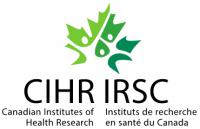Dr. Lin's lab is actively developing novel radiopharmaceuticals to improve cancer diagnosis and therapy. Current research efforts focus on (1) the development of novel radiopharmaceuticals targeting various potential markers expressed on cancer cell membranes; (2) the application of albumin binder to improve tumor uptake of radiotherapeutic agents; and (3) the application of cleavable linkers to reduce kidney uptake of peptide radiopharmaceuticals.
Dr. Kuo-Shyan Lin's Research Gate Profile
Lin Lab
Members
Faculty/Leaders

Dr. Kuo-Shyan Lin, PhD
Distinguished Scientist
Staff

Cynthia Ferguson
Research Projects and Operations Leader

Jinhe Pan
Research Assistant
Students/Trainees

Zhaoying Ding
Graduate Student

Shireen Jozi
Graduate Student

Sheetal Pathania
Graduate Student

Fatemeh Radnia
Graduate Student
Sponsors
BC Cancer Foundation is the fundraising partner of BC Cancer, which includes BC Cancer Research. Together with our donors, we are changing cancer outcomes for British Columbians by funding innovative research and personalized treatment and care.






